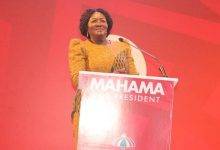
Former Finance Minister, Seth Terkper, has advised the government not to impose additional consumption taxes on Ghanaians, but rather consider reviewing the Value Added Tax (VAT) to broaden the indirect tax base.
“Instead of overburdening businesses with new consumption taxes, it should remove the distortions recently created, by allowing businesses to take credit or refunds for the so-called straight Levies (GETFund and NHIL)”, MrTerkper who is the Director of PFM Tax Africa said.
“It will help consumers because businesses merely add the ‘blocked’ taxes to prices,” he pointed out.
Mr Terkper, speaking to journalists via Zoom described the decision to extend the VAT Flat Rate Scheme (VFRS) to large retailers and wholesalers as a positive move.
He said it was encouraging to increase the VAT threshold for Small and Medium Scale Enterprises by enabling them to pay a single presumptive tax, in lieu of VAT.
The former Finance Minister, who is a VAT expert, introduced these measures as part of the comprehensive review of the VAT regime in 2015.
According to him, VAT, which is also a broader services tax, was reviewed during his time to strengthen it as a broad-based “single” consumption tax regime
The income tax (personal and corporate) comes next to VAT as a broad-based tax, primarily to generate revenues. However, this role is compromised by its use to provide incentives, such as tax holidays and accelerated depreciation, to promote investments.
MrTerkper explained further that the excise duty was punitive for health and environmental; petrol; tobacco; alcohol and sugar, while import duty is a tariff that protects all (not selected) domestic producers.
According to him, Ghana should stop using the so-called “benchmark” rules to tinker with the tariff and rather focus on their reductions or removal, under the Economic Partnership Agreement with the European Union and the African Continental Free Trade Area that is hosted by Ghana. These, he said are some reasons for creating a strong VAT regime and income tax bases to replace the lost tariff or customs duties.
Government introduced a 1.75 per cent Electronic Transaction Levy (e-levy) in the 2022 Budget in place of the road tolls, but has received public outcry. This tax though on business transactions will be borne by consumers.
MrTerkper questioned the removal of the road tolls, saying it was a populous decision, but not a strategic one.
According to him, it is a global instrument for creating Public Private Partnerships to develop road networks, especially highways as was envisaged for the Tema Motorway and others.
He therefore, advised current and future governments to stick to these globally-accepted designs or policies for tax instruments, adding, “When done, the Ghana Revenue Authority can focus on its operations, administration and compliance to strengthen the regime and generate the revenue needed”.
He also urged the GRA to firm these rules with its officers to enable them to offer quality policy advice, together with the Ministry of Finance’s Revenue Policy Unit.
Finally, he noted that, since the Rawlings era under ERP/SAP, Ghana had got it right to impose “temporary” income tax and “tariffs” to augment expenditure measures, to fight domestic and global crisis, amongst others.
The crisis include bush fires, droughts, fall in commodity prices – notably, gold, cocoa, oil, the global financial crisis, gas supply from Nigeria and Covid-19 pandemic.
He stressed that the use of taxes would be minimised or eliminated to avoid tax distortions by the use of the Stabilization Fund “windfalls” in good times to create an appropriate budget buffer or stabilizer, hence, no government should belittle another government’s crisis.






